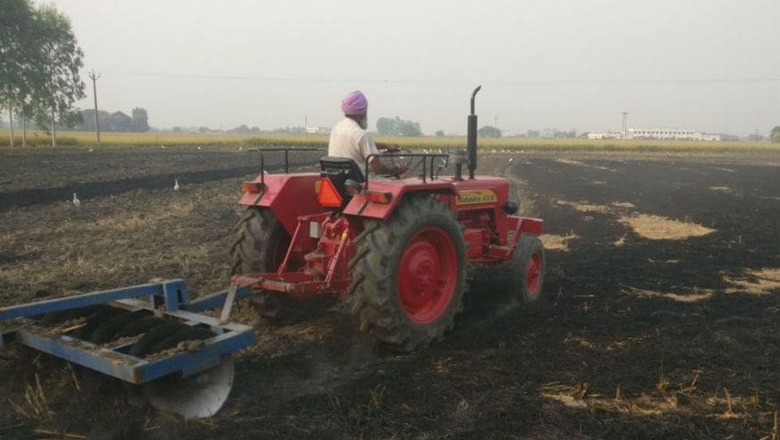
views
Wajidpur Village (Patiala): It’s that time of year again. The air in Delhi is more toxic than what human lungs can deal with.
And while the Supreme Court has banned cracker sale this Diwali, offering a partial relief, stubble burning in farms of Punjab and Haryana continues unabated, despite repeated bans by courts and the National Green Tribunal.
In Punjab, rice fields line both sides of the road, ready to be harvested. The only problem is that after harvesting, the farmers will set fire to the fields to clear the stubble.
The smoke from the burning stubble in Punjab and Haryana drifts southwards and exacerbates air pollution in Delhi-NCR. This pollution, timed with Diwali and the onset of winter, takes Delhi’s air quality to notorious levels of toxicity.
Delhi, already one of the most polluted cities, becomes a gas chamber because of the trifecta of vectors. Last year, the haze in Delhi after Diwali was reputedly worse than the great smog of London in 1952.
The National Green Tribunal and the courts have taken notice and announced a slew of measures to keep Delhi’s air from getting worse. The NGT passed an order against stubble burning, while the Supreme Court banned the sale of crackers in the National Capital Region.
However, farmers in Punjab and Haryana say there is no affordable alternative to stubble burning.
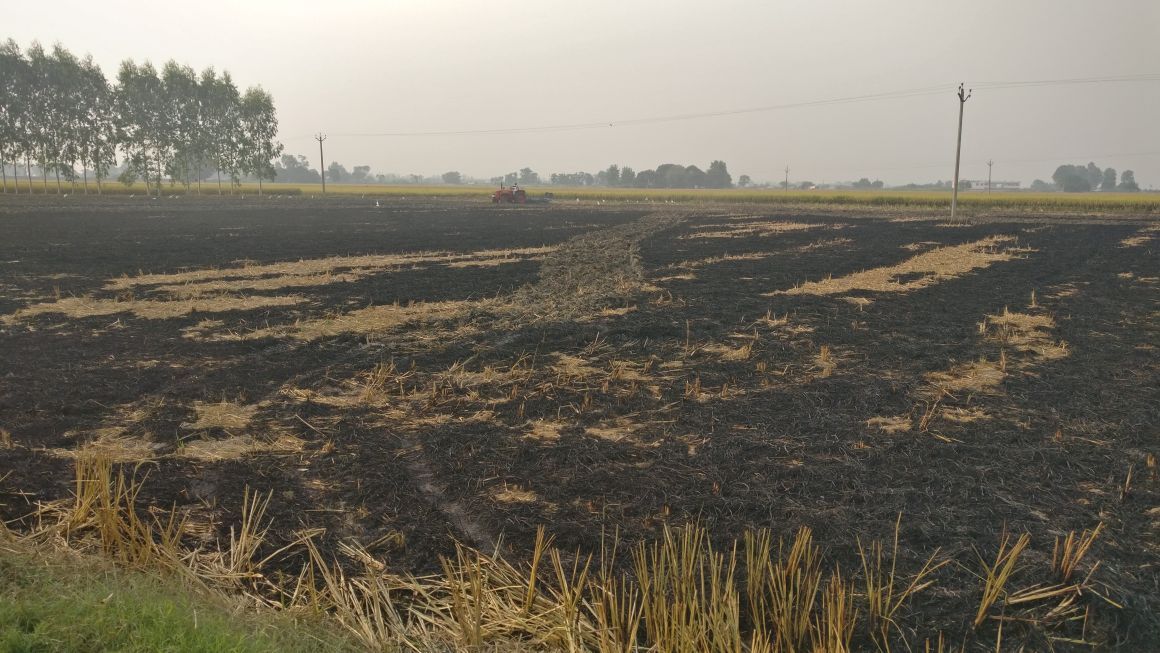
Farmers say the cost of clearing the field using manual labour is more expensive than the fines for burning crop. (Tushar Dhara/News18.com)
“I will set fire to my farm to clear it. If need be, I will pay the fine because there is no other option,” Jitendra Singh, a farmer told News18.
Farmers have a 20-day window between kharif harvest and rabi planting. During this time, they have to clear the fields and ready them for the winter wheat crop. And although farmers in Punjab are generally more prosperous than rest of India, the input costs are very high because agriculture here is highly mechanised. There is little margin — in terms of time or money — to worry about air pollution.
If a farmer is caught burning his farm, a fine of Rs 2,500 per acre can be levied. But this is a small price compared with the cost of alternative equipment.
Labour in Punjab is scarce and expensive, costing a minimum Rs 350-400 per day. A farmer would require at least 10 labourers to clear a one-acre farm. It’s cheaper to become an arsonist as dry grass instantly goes up in flames and within a couple of hours, carbon is all that remains.
In Wajidpur, by the time News18 reached, the fire had done its job and a farmer was running his tractor across his field to bury the evidence. Seeing this reporter, he got a scared because he thought the pollution department was coming to fine him!
“The government says don’t set fire, but have they suggested an alternative?” asks Gurmail Singh, a farmer with 20 acres of land.
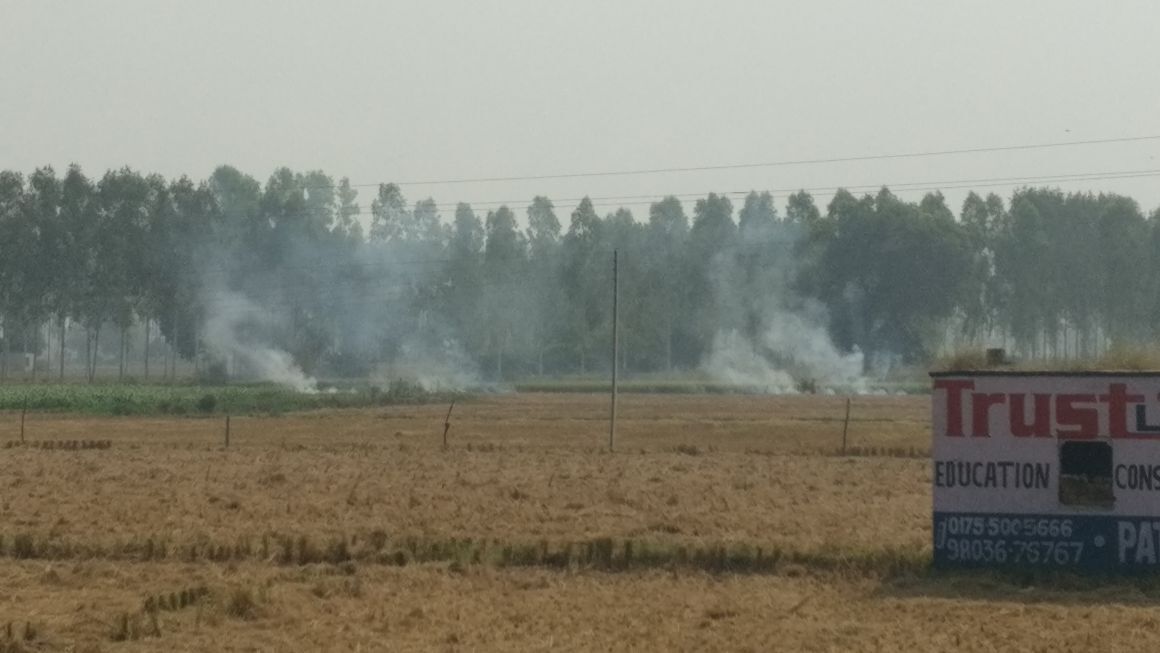
Smoke billows from a field in Punjab’s Wajidpur village. (Tushar Dhara/News18.com)
The combine harvester, which farmers use to harvest the rice crop, leaves 1.5 feet high stalks. It is this that needs to be burned. There is a machine that cuts the stalks and deposits them as rectangular bricks, but the machine costs over Rs 10 lakh. No small farmer can afford to buy or rent the machine.
Satwant Singh, a farmer and member of the Bharatiya Kisan Union, says they petitioned the government to give a subsidy of Rs 200 per acre to stop stubble burning. But the Punjab government, already strapped for cash and scrambling to put together resources for its debt relief package, didn’t agree.
The burnings haven’t started en masse yet. There is temporary relief for Delhi because most fires in Punjab will start after Diwali. However, since more pesticides and fertilizers were used this year, there are fears that the smoke may be even more lethal.
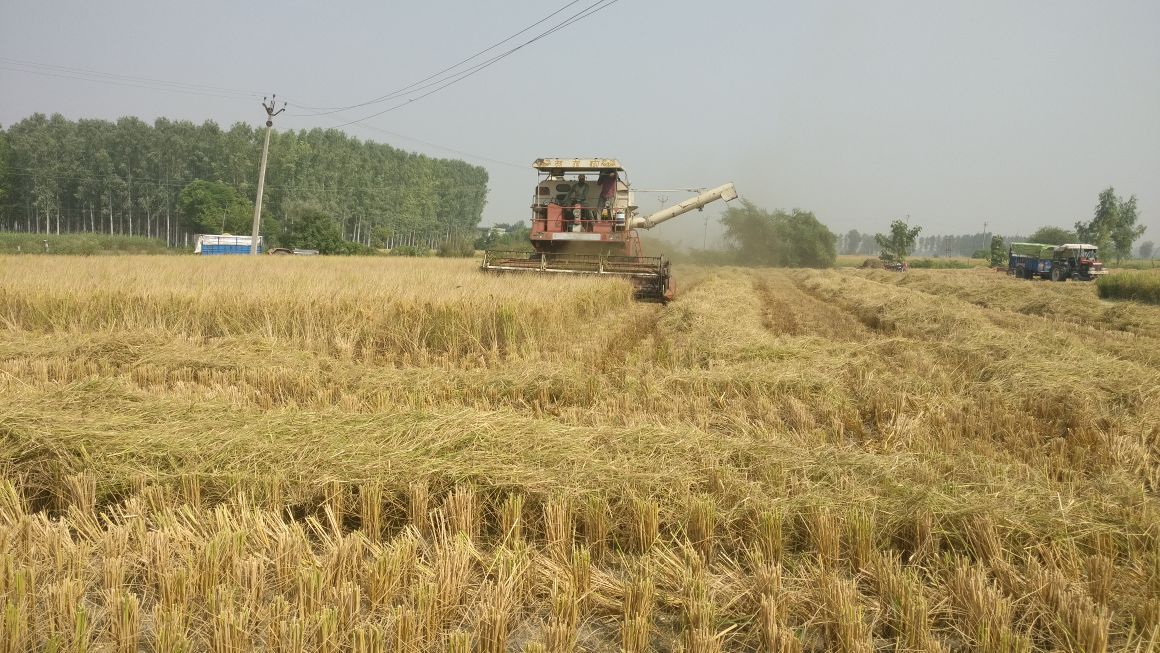
Farmers have a 20-day window between the kharif harvest and rabi planting. (Tushar Dhara/News18.com)
“There is no proof that our fires are causing the pollution in faraway Delhi,” a farmer says, adding, “There are so many cars and factories that cause pollution, why hold us solely responsible?”
The response was the same in Haryana. In Kaithal, most of the grain is being harvested and sent to the grain market. Jia Lal, a farmer who lives 30 km from Kaithal town, says 80% of the stubble will be cleared by burning the fields. “The government just says don’t burn, but it doesn’t provide any alternatives. What are we supposed to do?”













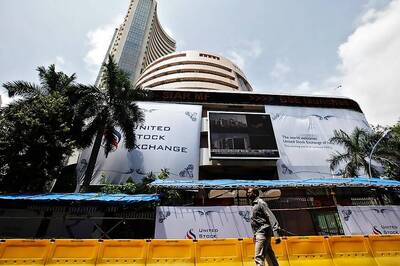
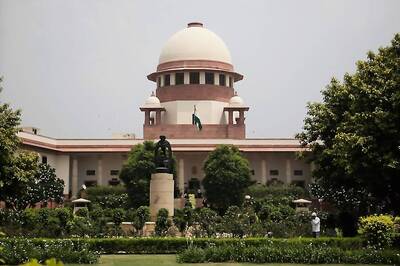




Comments
0 comment